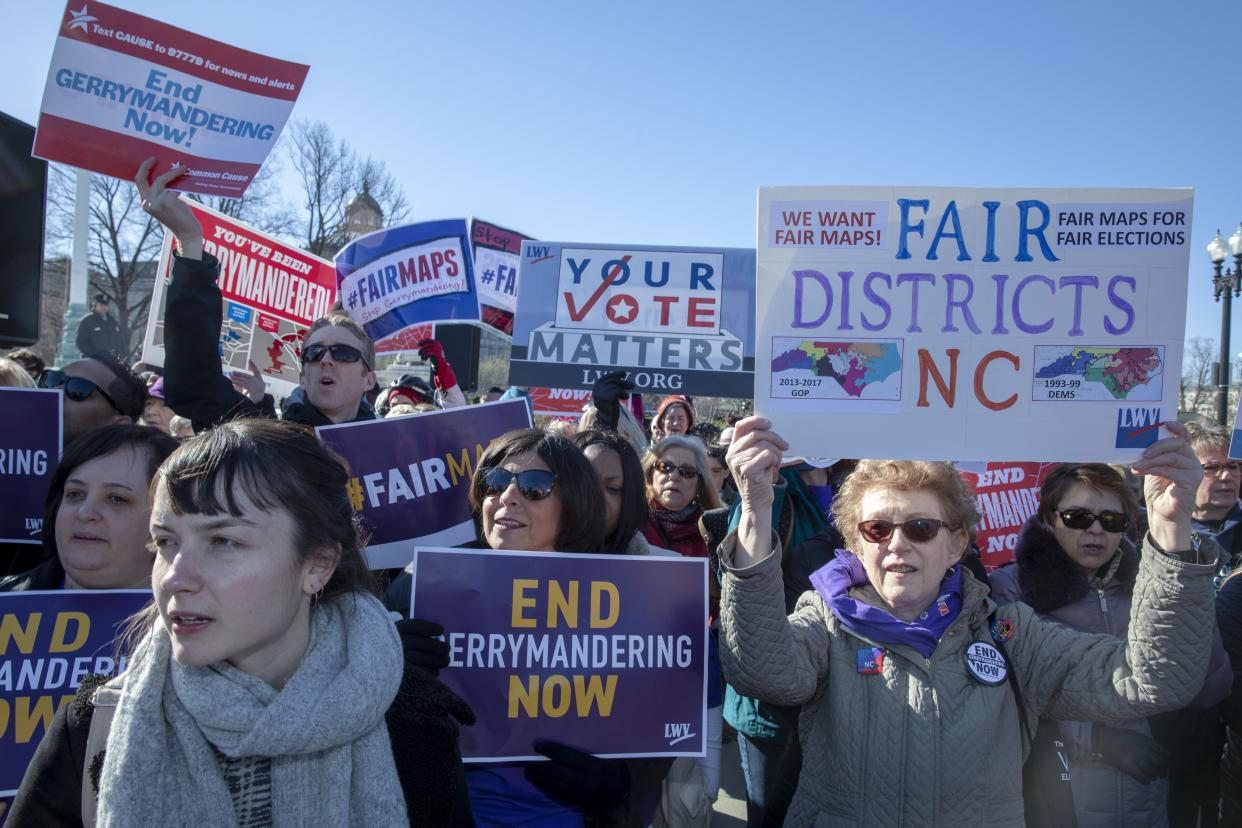End gerrymandering: Senate can safeguard democracy by outlawing partisan redistricting

You’re reading Our View, one of two perspectives in Today’s Debate.
For the Opposing View, read Why 'independent' redistricting commissions don't really end gerrymandering.
The shameful season of the gerrymander is in full bloom as state lawmakers redraw legislative and congressional districts so they can choose their voters rather than the other way around.
Just weeks after 2020 Census data was released showing the population has shifted and grown, redistricting knives came out.
Texas Republicans carved up the Houston district that House Democratic Rep. Sheila Jackson Lee has held for three decades, stripping out predominantly Black neighborhoods and potentially forcing her into a primary against another Democratic incumbent. Districts also were redrawn to double the number of electorally safe Republican congressional seats from 11 to 22.
In North Carolina, where the number of Democrats roughly equals Republicans, the GOP legislature hopes to increase the party's 8-to-5 advantage in congressional seats and pick up a new one generated by Census data.
The truth is both parties are guilty of gerrymandering. But Republicans shine at it because they control three times as many state redistricting efforts than Democrats, an edge that could well help them win back the House of Representatives next year.
There are slow- and fast-acting remedies to this pernicious rite. The slow one is halting and difficult, but better than nothing. The fast one is elegant and certain, and sadly facing a difficult vote Wednesday in the Senate.
Both remedies would be vast improvements over the status quo:
►Slow, but sure. Gerrymandering is almost universally hated by voters, and they have gradually started taking matters into their own hands, disgusted with self-serving politicians and a Supreme Court that gave up on the issue two years ago. Ballot initiatives have passed to establish redistricting panels.
A mix of advisory and independent commissions not controlled by either party are recasting districts in more than a dozen states. Their success has been mixed.
In Virginia, where voters approved the concept last year, a commission evenly divided between Republicans and Democrats has failed to reach consensus on redrawing state legislative districts.
It highlights a crucial problem for truly independent redistricting commissions: finding members who can negotiate in good faith. Virginia's panel is stocked with elected politicians no more willing to compromise there than when they're in the statehouse.
The gold standard for redistricting reform is California, where the law sets out an elaborate process for ensuring autonomy. However, even the outcome in Virginia, which may require the conservative state Supreme Court to step in, is better than allowing the politicians in Richmond to pick the voters they want to represent.
In fact, analysts predict that redistricting commissions may, this time around, end or stymie gerrymandering in Colorado, Michigan, New Mexico, New York and Ohio.
►Fast, but unlikely. Dozens of states still do not have redistricting commissions. In several of those states, one party controls the legislature and, in turn, the redistricting process. The quickest solution is for Congress to act.
The Freedom to Vote Act, which would outlaw gerrymandering, is before the Senate on Wednesday. The legislation would employ an analysis of previous voting patterns and the existing balance of Democratic and Republican congressional seats as a formula to gauge the impact of partisan gerrymandering in a state. Then it would allow citizens or the attorney general to challenge redistricting maps in court.
Problem solved. Except Republican senators have promised to filibuster the legislation to block passage.
District maps drawn to benefit one party or the other subvert democracy, upending the standard John Adams set in his "Thoughts on Government" in 1776, when he wrote that representation must be "in miniature, an exact portrait of the people at large. It should think, feel, reason, and act like them."
Gerrymandering is a perversion of that ideal. If the Supreme Court and Congress can do nothing about it, citizens must push for referendums that will establish independent commissions to end the practice state by state.
USA TODAY's editorial opinions are decided by its Editorial Board, separate from the news staff and the USA TODAY Network. Most editorials are coupled with an Opposing View, a unique USA TODAY feature.
To read more editorials, go to the Opinion front page or sign up for the daily Opinion email newsletter. To respond to this editorial, submit a comment to letters@usatoday.com.
This article originally appeared on USA TODAY: Freedom to Vote Act: Senate should pass bill to end gerrymandering

 Yahoo Movies
Yahoo Movies 
